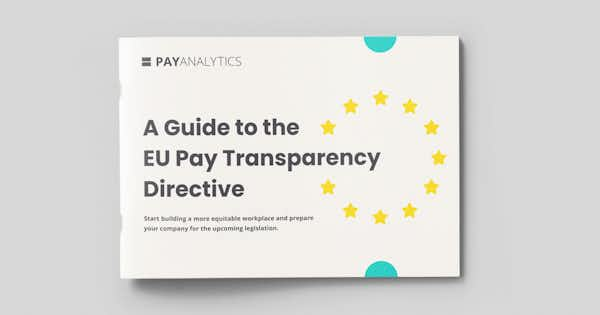Evróputilskipun um gagnsæi í launum | Sækja rafbók hér.
Illinois Law to Require Pay Transparency in Job Postings
The Illinois Equal Pay Act dates to 2003 and has been updated several times. Its most recent amendment, focused on pay transparency, will require many employers to include pay ranges in all job postings as of January 2025.

In this article, we’ll cover:
- Which employers the amendment applies to and when it takes effect
- What information will be required in job postings (including postings delegated to third parties)
- Implications for positions that are offered as promotion opportunities and for remote positions
Overview of the Illinois pay transparency legislation
With an official designation of House Bill (HB) 3129, these new measures were passed as an amendment to the 2003 Illinois Equal Pay Act (IEPA). This law is interesting for a few reasons:
- It specifically covers the use of third party job posting platforms, as well as the company’s own website.
- It covers remote positions that report to Illinois-based supervisors or offices.
- It sets a timeline for posting open positions as internal promotion opportunities.
This article looks at these recent changes to the Illinois Equal Pay Act and what the updated law will require. (Please note that this article is just an overview of the new requirements and does not constitute legal advice.)
The legislation was signed by Illinois Governor J.B. Pritzker on August 13, 2023 and will take effect on January 1, 2025.
Which employers does the Illinois pay transparency law apply to?
The law applies to all employers with 15 or more employees gainfully employed in Illinois.
Key requirements of the Illinois pay transparency law (HB 3129)
The biggest change the new legislation makes is that for employers of a certain size, any job posting must include the job’s pay scale and benefits.
This includes jobs performed at least partly in Illinois and those that report to a “supervisor, office, or worksite” located in Illinois.
If an employer uses a third party to post, publicize, or announce open positions, then the employer must provide the pay scale and benefit information to the third party. In turn, the third party must include that information in the job posting. (The third party will be liable for including this information, unless they can show that the employer failed to send it.)
If a vacant position is open to current employees for promotion, then the employer must announce it to current employees within 14 calendar days after posting it externally.
If a job, promotion, or transfer opportunity has not been posted publicly or internally, then the employer must disclose the pay scale and benefits for the position prior to discussing compensation with an applicant, prior to making an offer to the applicant, or at the applicant’s request.
The state considers “pay scale and benefits” to include an hourly or salary wage range and a general description of the benefits (which can include stock options, bonuses, or other incentives).
Want to talk to an expert about pay transparency and pay equity? Book a 1:1 conversation with one of our specialists.
Related legislation: The Illinois Equal Pay Act (IEPA)
As previously mentioned, these changes arise from an amendment to the Illinois Equal Pay Act of 2003. The IEPA was previously amended in 2021, so it already requires private employers with 100 or more employees to provide demographic data to the state’s department of labor and obtain an Equal Pay Registration Certificate.
Although the new legislation does not specifically bar employers from asking about job applicants’ salary histories, an earlier, 2019 amendment to the IEPA does prohibit it.
What are the enforcement mechanisms and penalties for non-compliance with the new pay transparency legislation in Illinois?
The Illinois Department of Labor (IDOL) will be investigating any complaints or reported violations. Employers found to be in violation will be given either 14 days (for a first-time violation) or seven days (for a second violation) to fix the job posting that is in violation.
After that, an employer that is still in violation will face fines:
- Up to $500 for a first-time violation,
- Up to $2,500 for a second violation,
- And up to $10,000 for a third violation.
Looking to improve your organization’s approach to pay equity? You might like our ultimate guide.
Next steps for Illinois employers
Illinois employers with 15 or more employees should prepare to comply with the new law by January 1, 2025. Some steps that you might take include:
- Establish or adopt a system that enables you to determine reasonable salary ranges.
- Evaluate the logistics of adding realistic pay ranges to postings.
- Begin keeping records of your organization’s pay scales for all positions and saving copies of all job postings.
- Plan and roll out training for hiring managers, talent acquisition, and human resources.
How can PayAnalytics help Illinois employers meet the new pay transparency requirements?
Please reach out to PayAnalytics if you’d like to demo our software to see how it can help you to comply with your local regulations. With PayAnalytics, you can:
- Get a comprehensive overview and in-depth understanding of their current salary structure.
- Compare job roles based on “substantially similar work” in our job evaluation feature.
- Create a framework to compare different jobs and employee characteristics based on standard and objective criteria.
- Conduct a pay equity analysis and measure and monitor pay gaps by any demographic variable.
- Address any identified pay disparities, correct pay discrepancies, and close pay gaps by making the appropriate changes suggested by the software, while understanding the associated costs.
- Gain valuable insights into pay practices and policies that may be contributing to pay disparities.
- Formalize and document pay policies to better respond transparently to candidates’ or employees’ requests for compensation information.
- Prevent pay disparities and sustain fair pay with ongoing decision support.
- Proactively reduce the risk of non-compliance and minimize the cost of remediation by conducting regular pay equity assessments.
- Report and share pay equity information with a user-friendly, flexible reporting feature.
Book your complimentary demo today.
Upplýsingum sem fram koma á þessari síðu er ekki ætlað að koma í stað lagalegs álits. Þessari samantekt er eingöngu ætlað að veita almenna innsýn. Við bendum á að þær upplýsingar sem fram koma, hvort sem um lagaleg atriði eða annað er að ræða, gætu hafa breyst.





